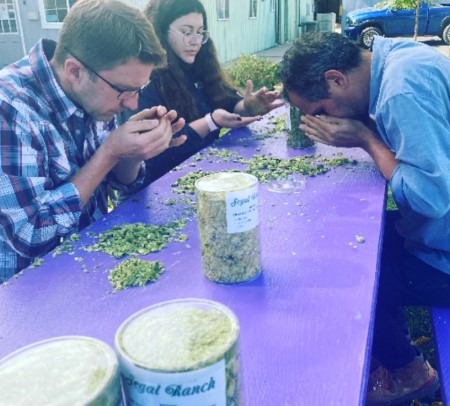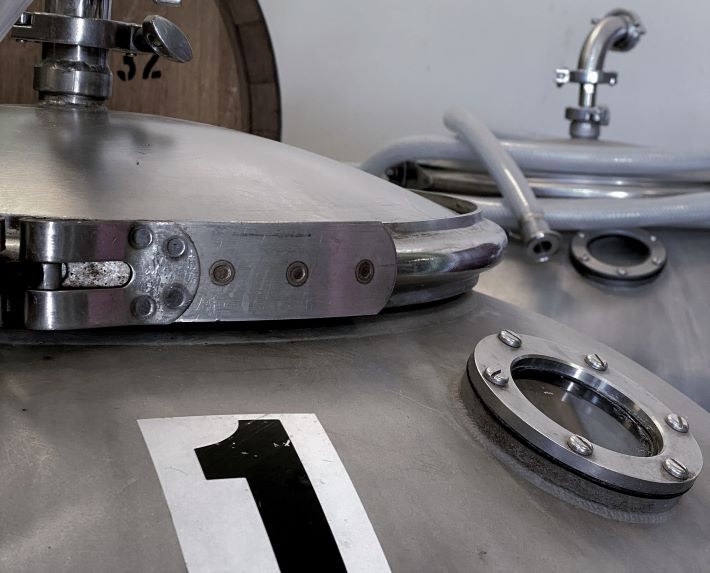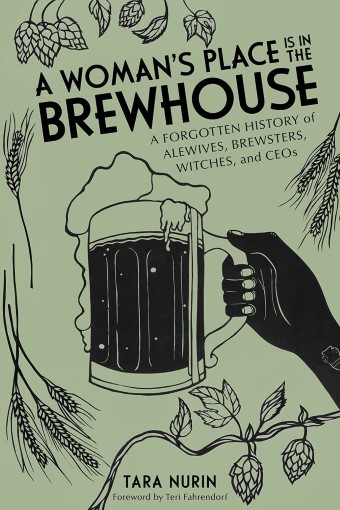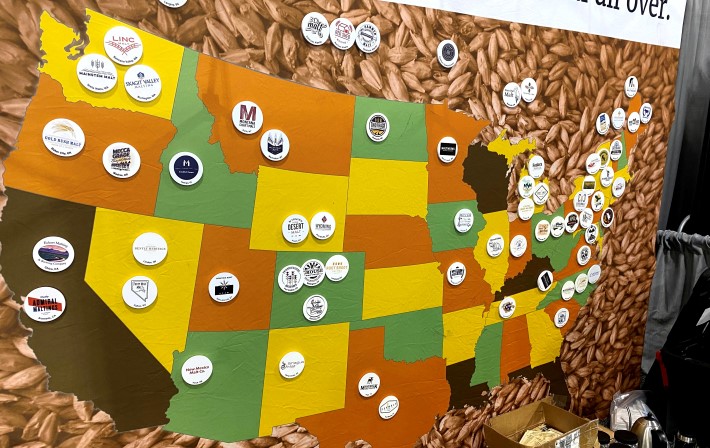If you looked at my Instagram feed the past month you would see photo after photo of American brewers visiting hop farms in the Northwest, assessing this year’s crop and interacting with the people who grow those hops. This is a good thing, communication that was much less common not long ago.
In some cases, those brewers may have a contract to buy a certain amount of a certain variety of hops from that farm. Or they may be thinking about it.
That may also be a good thing, but not always.
Such was obvious the past two years when smoke from fires in the Northwest tainted many harvested hops. For instance, last year smoke settled into Oregon’s Willamette Valley about the time Crystal hops were ready to harvest. One grower delayed harvest, waiting for the smoke to clear. It did not. The hops were harvested and a brewer who had a contract to buy them rejected them (the farmer agreed they smelled unpleasantly of smoke).
In this case, Indie Hops, a broker who would have processed those baled hops into pellets, was able to supply that customer (and others) with Crystal from previous crop inventory.
All that to explain why I paused when I read that English hop growers charting a new path could mean a new generation could be “dealing directly with breweries, bypassing the hop merchants who have been a key element of hop-buying in this country for generations. It’s a shift that has the potential to revolutionise the perception of English hops, in this country and further afield.”
Goodness gracious, these are not easy times for English hop growers. They deserve better. Stronger relationships with brewers, which may or may not include direct sales, would surely help. So will English-specific varieties that excite brewers, and drinkers, as much as New World hops from the United States and down under. And hop merchant Charles Faram has been the leader in breeding those sorts of varieties. The merchant-grower relationship can also be a valuable one.
I should add that “charting a new path” is a lovely story.
“Life changed when a neighbour invited (Will Kirby) to a hop harvest. ‘I just fell in love with the buzz, and the smell,” he says. “There’s something about hops that really grabs you.’”
My kind of guy.
A few other stories from last week you might want to read:
Diversity
Other voices, other rooms: “You can get lost in the amount of podcast content that is out there about beer. However, like the larger industry, voices of women, people of color, and LBGTQ folks are often underrepresented in the podcast universe.” 11 podcasts changing that.
You talkin’ to me? A second Black-owned brewery opened Saturday in Chicago. “Funkytown is a brand meant to reflect the perspective of its Black owners. The label on (the) flagship pale ale is a riff on an iconic ’90s-era hip-hop album. . . . Expect most everything else of Funkytown’s to follow the ethos. Beer names and labels will reflect the founders’ tastes in music (hip-hop and R&B), often with a 1990s vibe (‘the clothes, the music, the culture, the slang, the lack of digital technological pervasiveness,’ one owner said).”
Jamhal Johnson, co-owner of Moor’s Brewing, which opened earlier this year, said the theory he most often hears is that cost drives Black people from craft beer. He doesn’t buy it.
“I feel it’s never been marketed to that group in the right way. It’s always been marketed to, for lack of better term, beer nerds — a ‘You have to be part of the culture’ type thing. My idea is to create a craft beer brand and focus on marketing it to the people with imagery and messaging that resonates with that group.”
Outsider advantage
The “technical evolution of fine wine is being driven by those outside of the industry . . . Most of these people are wine outsiders – pioneers and agitators, passionate about wine but seeing it as an advantage that they are not part of the establishment. Between them, they have garnered hundreds of millions of investor dollars and venture-capital funding to turbocharge their growth.”
And the beer analogy would be?
Lead of the week
[Via New York Post]
LIVINGSTON MANOR, N.Y. — The suds are flying as a bitter battle brews between beermakers in this Catskills hamlet.
And . . .
But the yuppie imbibers have bumbled into an old-fashioned, small-town brew-haha, gossiped about at the barber and at bars, complete with alleged beer-trayals and backstabbing.
Always for pleasure (except when it’s not)
Firestone Walker Vine Minded: a bizarre fusel society exclusive no one asked for. https://t.co/VhMTXz3Aa8
— dontdrinkbeer (@dontdrinkbeer) September 29, 2021



 It’s the sort of origin story that has been told thousands of times since Jack McAuliffe (and Suzy Stern and Jane Zimmerman, although they are not mentioned much more often than they are) founded New Albion Brewing Company in 1976. But it will be new to most who read “A Woman’s Place in the Brewhouse” because it has pretty much been part of “A Forgotten History of Alewives, Brewsters, Witches, and CEOs.”
It’s the sort of origin story that has been told thousands of times since Jack McAuliffe (and Suzy Stern and Jane Zimmerman, although they are not mentioned much more often than they are) founded New Albion Brewing Company in 1976. But it will be new to most who read “A Woman’s Place in the Brewhouse” because it has pretty much been part of “A Forgotten History of Alewives, Brewsters, Witches, and CEOs.”